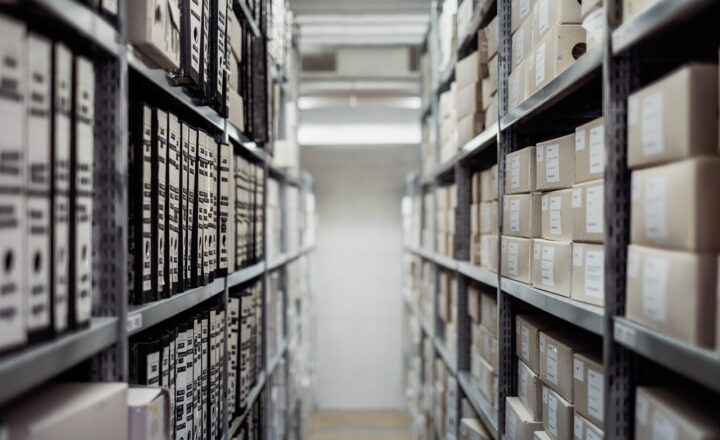
In the vast landscape of the internet, where information is constantly created, updated, and erased, the existence of internet archives serves as a crucial pillar in safeguarding our digital history. These archives not only help in preserving significant web pages but also ensure that future generations can retrieve and learn from information that may otherwise be lost in time. This article delves into the importance, functionality, and implications of internet archives in maintaining our collective memory online.
1. Understanding Internet Archives
Internet archives are digital repositories that capture and store website data, pages, and content as they appeared at specific points in time. The most notable among these is the Internet Archive, established in 1996 by Brewster Kahle. This non-profit organization is devoted to building a digital library of internet sites and other cultural artifacts. Internet archives serve several functions: they allow researchers to explore the evolution of websites, provide access to historical information, and preserve content that may no longer be available online.
2. Why Preserve Digital History?
In an age where information is siloed, the preservation of digital history is vital for a number of reasons:
- Cultural Importance: Digital artifacts—such as blogs, social media posts, and government websites—reflect the culture, values, and affairs of their time. Preserving this information contributes to our understanding of social dynamics and historical contexts.
- Research and Education: Academics and students rely on original sources for research and education. Internet archives provide a wealth of primary data essential for informed scholarship.
- Legal Documentation: Archived content can serve as legal evidence in disputes, ensuring that judgment can be made based on the historical context of the information.
- Technological Evolution: As technology advances, documentation of how websites and online experiences have changed reflects larger trends and innovations in coding, design, and user interaction.
By preserving digital history, we ensure continuity in storytelling and knowledge transmission.
3. The Mechanisms Behind Internet Archives
How do internet archives function, and what are their primary mechanisms?
- Crawlers: Internet archives utilize automated programs known as web crawlers to browse the internet and download content from websites. These crawlers operate on specific schedules and can store versions of web pages for future access.
- Wayback Machine: The Internet Archive’s Wayback Machine is perhaps the most well-known tool, allowing users to input any URL and see how a website looked at various points in time. This creates a timeline of that webpage’s evolution and provides context to its content changes.
- Community Contributions: Beyond automated archiving, community submissions play a crucial role. Users can contribute forgotten or missing web pages to enhance the archival repository, ensuring a broad range of data is captured.
- Metadata Cataloging: Archived content is usually accompanied by metadata that describes the context of the webpage, such as the date of capture and any modifications made. This cataloging aids in easy retrieval and analysis of digital history.
Through these mechanisms, internet archives create an extensive repository that is invaluable for both present and future inquiries into our digital landscape.
4. Challenges Facing Internet Archiving
While internet archives are important, they face several challenges:
- Dynamic Content: Websites today are increasingly interactive and dynamic, making it difficult for crawlers to capture all the elements properly. Content that relies on scripts may not display as intended when archived.
- Obsolescence: Some archived data may become obsolete or irrelevant, necessitating a continual reevaluation of what should be preserved. The challenge is to balance relevance with historical documentation.
- Legal Issues: The legality of archiving content can be murky. Issues may arise concerning copyright infringement and privacy rights, creating tensions between preservation efforts and protecting intellectual property.
- Funding and Resources: Many internet archive projects operate on limited budgets, affecting their ability to scale efforts and maintain comprehensive archives.
Each of these challenges reinforces the need for careful consideration and adaptive strategies in the realm of digital preservation.
5. The Future of Internet Preservation
The future of internet preservation hinges on technological advances, increased awareness, and community engagement:
- Harnessing AI: As artificial intelligence and machine learning improve, these technologies could enhance how crawlers index content and determine what is significant for preservation.
- Cross-organizational Collaboration: Future initiatives may see collaboration between universities, libraries, and technological organizations to streamline archiving processes and enhance the depth of preserved data.
- Global Initiatives: Efforts to create a worldwide network of digital preservation can lead to a more inclusive approach, capturing diverse voices and preserving cultural heritage across different countries and communities.
- Public Engagement: Raising awareness about the importance of digital preservation encourages individuals to contribute their own content and support archival efforts, fostering a culture of historical mindfulness.
The evolution of the digital landscape continues to unfold, and the methods we use to preserve it must evolve alongside to capture the richness of human expression online.
Conclusion
In conclusion, internet archives play an irreplaceable role in documenting and preserving the ever-changing online world. As custodians of digital history, these archives foster a sense of continuity and provide essential resources for education, research, and cultural reflection. By embracing development and addressing the challenges ahead, we can ensure that digital history is not only preserved but is also accessible to current and future generations. Archiving the internet is not merely a task but a vital duty to humanity’s digital heritage, one that becomes increasingly important as we navigate and contribute to this vast, dynamic landscape.
Whether you are an academic researching historical trends, a casual internet user curious about the past, or a creator looking to preserve your digital footprint, internet archives are a valuable resource that connects us all through time.








